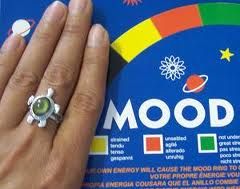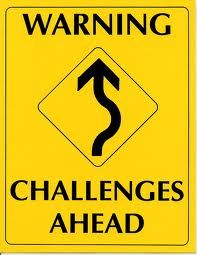Stress
Five Strategies for Overcoming Emotional Eating
Emotional eating is one of the biggest barriers to weight loss
Posted June 25, 2012
Emotional eating is the tendency to eat in times of stress, anxiety, anger, or sadness. Emotional eating is a huge barrier to weight loss by adding many unnecessary calories to the diet and creating a psychological and physiological reliance on food for emotional coping. Here are five strategies to conquering emotional eating once and for all.

1. Name that Mood. The first step in overcoming emotional eating is to get a clearer understanding of when it happens. When keeping your diet journal, make a note of your mood each time you eat. This will allow you to identify episodes of emotional eating. Figure out how often you eat when in bad moods, what time of day, which days of the week, and which foods (keep these foods out of the house!). This will give you insight into your patterns and help you know when to utilize the following strategies.

2. Ride the Storm Out. Negative emotions ebb and flow like the tide. Sometimes it feels very bad and other times it pulls back and is barely noticeable, and this can all occur over a matter of minutes or hours. Knowing that a bad feeling will subside is important because learning to deal with the bad feeling without eating involves developing the ability to tolerate it. This means to just feel the emotion in its entirety without doing anything to prevent it. Let high tide wash over you. Sounds fun, eh? No, not fun at all, but bad feelings take on a life of their own when you put up a fight or run from them. I used to work in a phobia treatment clinic using a therapy called “in vivo exposure” (Koch et al 2004). The theory was that if you experience fear without doing anything to escape it, it will go away. I led patients through a 3-hour protocol where they confronted their feared object, slowly but surely. I remember a tall, burly farmer I treated who was deathly afraid of snakes. He shook, sweat, and cried throughout the treatment. I had to hold back the impulse to crack a joke, comfort him, or do anything to interrupt him. I was instructed specifically not to do this because he needed to power through it, to let it run its course. By the end of treatment, he was relaxed, smiling, holding the snake, and making jokes. Patient after patient, the same thing happened. When you eat during a negative emotion you are distracting yourself, which does not allow the feeling to run its course. The next time you have an overwhelming emotion, I challenge you to just experience it, making no action to prevent it. Notice how it eventually subsides. By using food to escape from bad feelings you will never discover that you can tolerate bad feelings and that they will subside.

3. Don’t Empower Your Vices. By eating during a negative emotion, you are giving food a new power beyond just meeting your nutrition needs. Food becomes a coping strategy, making your desire for it intensify. You begin to believe that you need food to get through bad feelings. Worse yet, studies show that eating high-fat and/or high-sugar foods can affect activity in the parts of your brain that manage stress, which will further reinforce your reliance on eating in response to stress (Dallman et al 2011). If you feel that you can’t resist eating in response to a bad mood, consider reaching for raw fruit or vegetables since these foods are unlikely to have that effect on your brain.

4. Healthy Coping. The key is to find ways to cope with negative feelings that do not cause more problems. Eating causes more problems, and so does drinking, sleeping too much, and getting lost in TV for hours at a time. Exercise and talking with a supportive friend are good examples of healthy coping. When considering a new coping strategy, ask yourself: “Will doing this make me feel better or worse right now?” and “Will doing this make me feel better or worse tomorrow?” If you can say “better” to both questions, it is probably a healthy coping strategy. There is no sense in feeling better in the moment if it costs you tomorrow.

5. Conquering the Hard Times Is the Key to Long-Term Success. I have had patients who when having trouble losing weight say: “Well, this isn’t a good time for me to be trying to lose weight, things are so busy and stressful now.” This is a Fair Weather Loser—someone who can only lose weight and live healthy when all in their life is calm. When is that going to happen? Life is constant chaos. The secret to weight loss success is being able to keep a healthy lifestyle even in the midst of chaos. If you gain weight every time life gets stressful, your weight will always go up and down. Challenge yourself to keep your healthy lifestyle going during stressful times. This will give you the confidence that you can do this no matter what difficulties come your way.
References
Dallman, MF. (2010). Stress-induced obesity and the emotional nervous system. Trends in Endocrinol Metab, 21(3), 159-165.
Koch, E. I., Spates, C. R., & Himle, J. A. (2004). Comparison of behavioral and cognitive-behavioral one-session exposure treatments for small animal phobias. Behaviour Research and Therapy, 42, 1483–1504.


